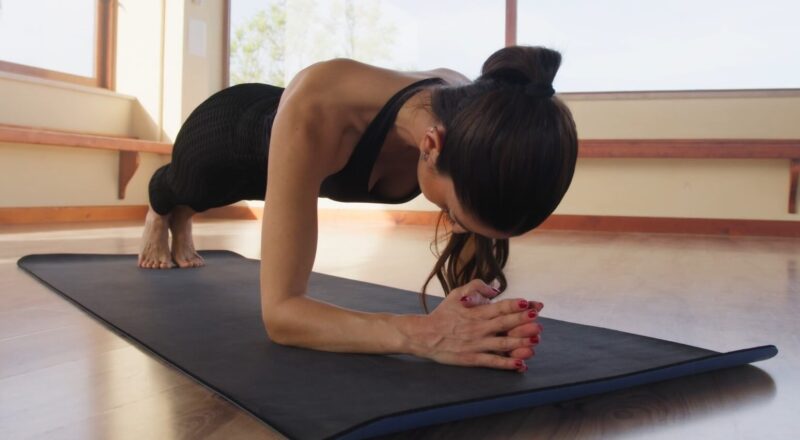Heart Rate Variability (HRV) is a fascinating metric that tells us a lot about our autonomic nervous system and overall health.
It measures the variation in time between each heartbeat, and a higher HRV generally indicates better cardiovascular fitness and resilience to stress.
Let’s explore some practical ways to boost your HRV and enhance your well-being.
Table of Contents
Toggle1. Get Better Sleep
Sleep is the cornerstone of good health, and it’s no different when it comes to heart rate variability. Quality sleep allows your body to recover and maintain balance in your autonomic nervous system.
Tips for Better Sleep
- Aim for 7-9 Hours: Most adults need between 7-9 hours of sleep each night for optimal health.
- Regular Sleep Schedule: Try to go to bed and wake up at the same time every day, even on weekends.
- Sleep Environment: Keep your bedroom dark, quiet, and cool. Consider using blackout curtains, earplugs, or a white noise machine.
- Pre-sleep Routine: Establish a relaxing bedtime routine, like reading a book, taking a warm bath, or practicing relaxation exercises.
- Avoid Screens: Turn off electronic devices at least an hour before bed to avoid the stimulating effects of blue light.
The research by Amirreza Sajjadieh indicates that poor sleep quality is negatively associated with HRV, highlighting the importance of good sleep for maintaining optimal HRV levels. Improved sleep quality can lead to a more balanced autonomic nervous system, which in turn enhances HRV.
2. Practice Breathing Exercises
Breathing exercises are a simple yet powerful way to improve HRV. Deep, diaphragmatic breathing can activate the parasympathetic nervous system, which helps to calm the body and mind.
Techniques to Try
- Diaphragmatic Breathing: Focus on breathing deeply from your diaphragm rather than shallow chest breathing.
- Box Breathing: Inhale for 4 seconds, hold for 4 seconds, exhale for 4 seconds, and hold for another 4 seconds. Repeat.
- 4-7-8 Breathing: Inhale for 4 seconds, hold for 7 seconds, and exhale for 8 seconds. This technique can be particularly calming.
Studies conducted by Shyam Chaitanya have shown that resonance breathing can increase HRV, improve mood, and enhance adaptability. A four-week intervention with resonance breathing exercises demonstrated significant improvements in these areas.
3. Find Balance in Your Exercise Routine
Exercise is crucial for good health and improving HRV, but it’s important to strike the right balance. Overtraining can lead to fatigue and decreased HRV, so mix up your routine with both high-intensity and moderate-intensity workouts.
Exercise Tips
- Regular Aerobic Exercise: Activities like running, swimming, or cycling can boost HRV.
- Strength Training: Incorporate weight lifting or body-weight exercises to build muscle.
- Flexibility and Balance: Yoga or tai chi can improve flexibility and balance while promoting relaxation.
- Recovery: Ensure you get adequate rest between intense training sessions to allow your body to recover.
According to Sophie Lezama, regular exercise positively impacts HRV by promoting a healthy autonomic nervous system. However, overtraining can lead to a decrease in HRV due to chronic imbalances in nervous system activity. This emphasizes the importance of incorporating adequate rest and recovery periods in your workout regimen.
4. Stay Hydrated
Hydration plays a vital role in maintaining physiological functions, including HRV. Dehydration can negatively impact your HRV, so it’s important to drink enough water throughout the day.
Hydration Guidelines
- Daily Intake: Aim for 8-10 glasses of water daily, more if you’re active or live in a hot climate.
- Hydrating Foods: Include water-rich foods in your diet, such as cucumbers, watermelons, and oranges.
- Electrolytes: Ensure you get enough electrolytes, especially if you sweat a lot during exercise. Foods like bananas, avocados, and spinach can help.
According to UltimaReplenisher, dehydration is known to reduce HRV, making it crucial to maintain adequate fluid intake. Proper hydration can mitigate stress-induced decreases in HRV and improve overall well-being.
5. Skip the Alcohol
Excessive alcohol consumption can lower HRV and disrupt your sleep patterns. Moderation is key if you want to keep your HRV in check.
Tips for Moderation
- Limit Intake: Follow guidelines for moderate drinking – up to one drink per day for women and two for men.
- Alcohol-free Days: Incorporate alcohol-free days into your week to give your body a break.
Chronic and heavy alcohol consumption is associated with lower resting HRV. Studies by David Eddie have demonstrated that greater alcohol use results in decreased HRV, indicating a stressed autonomic nervous system and reduced cardiovascular health.
6. Eat Healthily
A balanced diet is essential for maintaining good HRV. Focus on whole foods that provide the nutrients your body needs to function optimally.
Nutrition Tips
- Antioxidants: Eat foods rich in antioxidants, like berries, nuts, and dark leafy greens.
- Omega-3s: Include sources of omega-3 fatty acids, such as salmon, chia seeds, and walnuts.
- Whole Foods: Focus on unprocessed foods and avoid trans fats, high-fructose corn syrup, and artificial additives.
- Timing: Avoid large meals close to bedtime to prevent disrupting your sleep.
According to OnePeloton, a diet rich in fruits, vegetables, whole grains, legumes, nuts, and olive oil, commonly known as the Mediterranean diet, is associated with higher HRV. This diet provides essential nutrients that improve heart health and autonomic balance.
7. Manage Stress
Chronic stress is a significant factor in lowering HRV. Finding ways to manage stress can greatly improve your HRV and overall health.
Stress-Reduction Techniques
- Yoga: Engage in yoga sessions that focus on relaxation and stress reduction.
- Progressive Muscle Relaxation: Practice tensing and then relaxing each muscle group, starting from your toes and working up to your head.
- Biofeedback Training: Use biofeedback devices to learn how to control physiological functions and manage stress more effectively.
As per S. Srakocic, Stress management techniques such as meditation, deep breathing exercises, and mindfulness can reduce the activity of the sympathetic nervous system (responsible for the ‘fight or flight’ response). Lowering this activity can result in higher HRV, indicating better cardiovascular health and resilience to stress.
8. Exercise Regularly
Consistent physical activity tailored to your fitness level can significantly improve HRV. Both aerobic and resistance training have shown positive effects.
Exercise Routine
- Aerobic Activity: Incorporate activities like running, cycling, or swimming into your routine.
- Resistance Training: Engage in weight lifting or body-weight exercises to build strength.
- Warm-up and Cool-down: Always include adequate warm-up and cool-down phases in your exercise routines to prevent injury and aid recovery.
Studies conducted by Faye S Routledge, PhD RN, state that regular exercise can enhance cardiac autonomic regulation, leading to increased HRV. This means that the heart is better able to respond to varying physiological demands, indicating a healthier and more adaptable cardiovascular system.
9. Mindfulness and Meditation
Mindfulness practices and meditation are excellent for improving HRV by reducing stress and promoting relaxation. Even short, daily sessions can make a difference.
Meditation Tips
- Daily Practice: Set aside a few minutes each day for meditation or mindfulness practices.
- Guided Sessions: Use apps or online resources for guided meditation sessions if you’re new to the practice.
- Consistency: Like exercise, consistency is key to seeing benefits from mindfulness and meditation.
Meditation positively affects HRV by promoting relaxation and reducing stress. This practice helps balance the autonomic nervous system, enhancing vagal activity which contributes to improved heart health, according to Harvard Health.
10. Cold Exposure
Brief exposure to cold, such as cold showers or ice baths, can stimulate the parasympathetic nervous system and improve HRV.
How to Start
- Gradual Exposure: Start with short, cool showers and gradually increase the time and coldness.
- Consistency: Regular exposure can help your body adapt and reap the benefits.
- Safety First: If you have any health conditions, consult your doctor before starting cold exposure practices.
According to Richard Joseph, cold immersion stimulates the vagus nerve, which plays a crucial role in parasympathetic nervous system activation. This stimulation can increase HRV, indicating a better balance between the sympathetic and parasympathetic systems. Enhanced vagal tone through cold exposure suggests improved cardiovascular health and resilience.
11. Reduce Caffeine Intake
Moderate caffeine consumption is generally harmless, but excessive intake can impact HRV negatively. Monitor how your body reacts to caffeine and adjust accordingly.
Caffeine Tips
- Monitor Intake: Keep track of your daily caffeine consumption to see how it affects you.
- Alternatives: Consider switching to lower-caffeine options like green tea, or decaffeinated beverages.
- Timing: Avoid consuming caffeine late in the day to prevent it from disrupting your sleep.
Research conducted by Western Kentucky University indicates that caffeine consumption decreases HRV at rest, suggesting that high caffeine intake might impair autonomic regulation of the heart. This reduction in HRV is particularly noted regardless of sex, highlighting a broad impact across different demographics.
12. Avoid Smoking
Smoking has a detrimental effect on cardiovascular health and HRV. Quitting smoking can lead to significant improvements in HRV and overall well-being.
Quitting Tips
- Seek Support: Consider using resources and support groups to help you quit smoking.
- Replacement Strategies: Find healthy alternatives to replace the habit, such as chewing gum or engaging in physical activity.
- Stay Persistent: Quitting smoking is challenging, but the benefits for your HRV and health are worth the effort.
As per Irfan Barutcu, M.D., avoiding smoking reduces the activity of the sympathetic nervous system, which is responsible for the “fight or flight” response. Reduced sympathetic activity leads to an increase in heart rate variability (HRV), a measure of the variation in time between each heartbeat.
13. Engage in Social Activities
Positive social interactions can boost mood and reduce stress, positively affecting HRV. Engaging with friends, family, and community can be very beneficial.
Social Tips
- Quality Time: Spend time with friends and family doing activities you enjoy.
- Community Involvement: Participate in community activities or volunteer work to foster a sense of connection and purpose.
- Balance: Make time for social activities that are relaxing and enjoyable, rather than stressful or obligatory.
Boris Bornemann states that social engagement has been shown to incidentally increase high-frequency heart rate variability (HF-HRV), which accompanies positive social behavior and altruistic actions. Engaging in positive social activities can therefore enhance HRV by promoting prosocial behavior.
Concluding Thoughts
Improving HRV is about making consistent, healthy choices across various aspects of your life.
By focusing on sleep, exercise, hydration, nutrition, stress management, and positive social interactions, you can enhance your HRV and overall well-being.
Remember, small, consistent changes can lead to significant improvements over time.
Related Posts:
- Heart Rate Variability Chart by Age - Key Trends to Know
- 10 Shocking Statistics About Heart Disease in 2025
- Average Non-HDL Cholesterol Levels - What They Tell…
- 10 Early Symptoms of Heart Attacks That Often Go Unnoticed
- Top 4 Seasons With Record Denver Nuggets Attendance
- Top 10 Conditions That Lead to ER Visits in the U.S.…



















